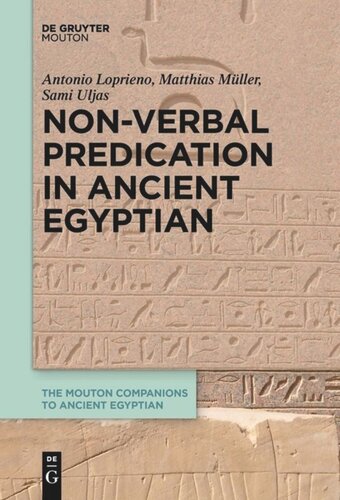

Most ebook files are in PDF format, so you can easily read them using various software such as Foxit Reader or directly on the Google Chrome browser.
Some ebook files are released by publishers in other formats such as .awz, .mobi, .epub, .fb2, etc. You may need to install specific software to read these formats on mobile/PC, such as Calibre.
Please read the tutorial at this link: https://ebookbell.com/faq
We offer FREE conversion to the popular formats you request; however, this may take some time. Therefore, right after payment, please email us, and we will try to provide the service as quickly as possible.
For some exceptional file formats or broken links (if any), please refrain from opening any disputes. Instead, email us first, and we will try to assist within a maximum of 6 hours.
EbookBell Team

4.8
74 reviewsThe Egyptian language, with its written documentation spreading from the Early Bronze Age (Ancient Egyptian) to Christian times (Coptic), has rarely been the object of typological studies, grammatical analysis mainly serving philological purposes.
This volume offers now a detailed analysis and a diachronic discussion of the non-verbal patterns of the Egyptian language, from the Pyramid Texts (Earlier Egyptian) to Coptic (Later Egyptian), based on an extensive use of data, especially for later phases. By providing a narrative contextualisation and a linguistic glossing of all examples, it addresses the needs not only of students of Egyptian and Coptic, but also of a linguistic readership. After an introduction into the basic typological features of Egyptian, the main book chapters address morphology, syntax, semantics and pragmatics of the three non-verbal sentence types documented throughout the history of this language: the adverbial sentence, the nominal sentence and the adjectival sentence. These patterns also appear in a variety of clausal environments and can be embedded in verbal constructions.
This book provides an ideal introduction into the study of Egyptian historical grammar and an indispensable companion for philological reading.